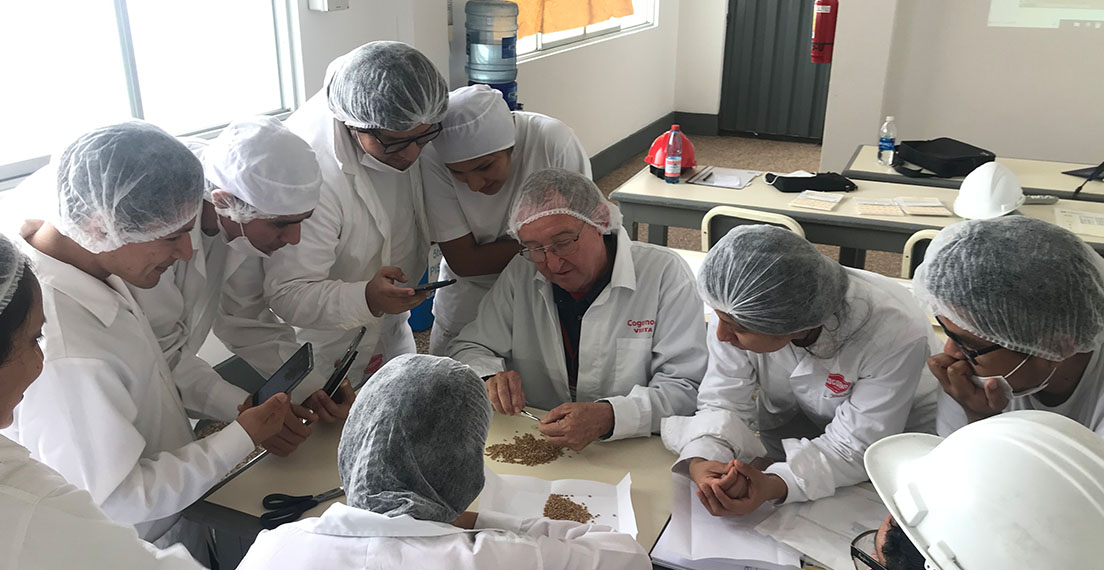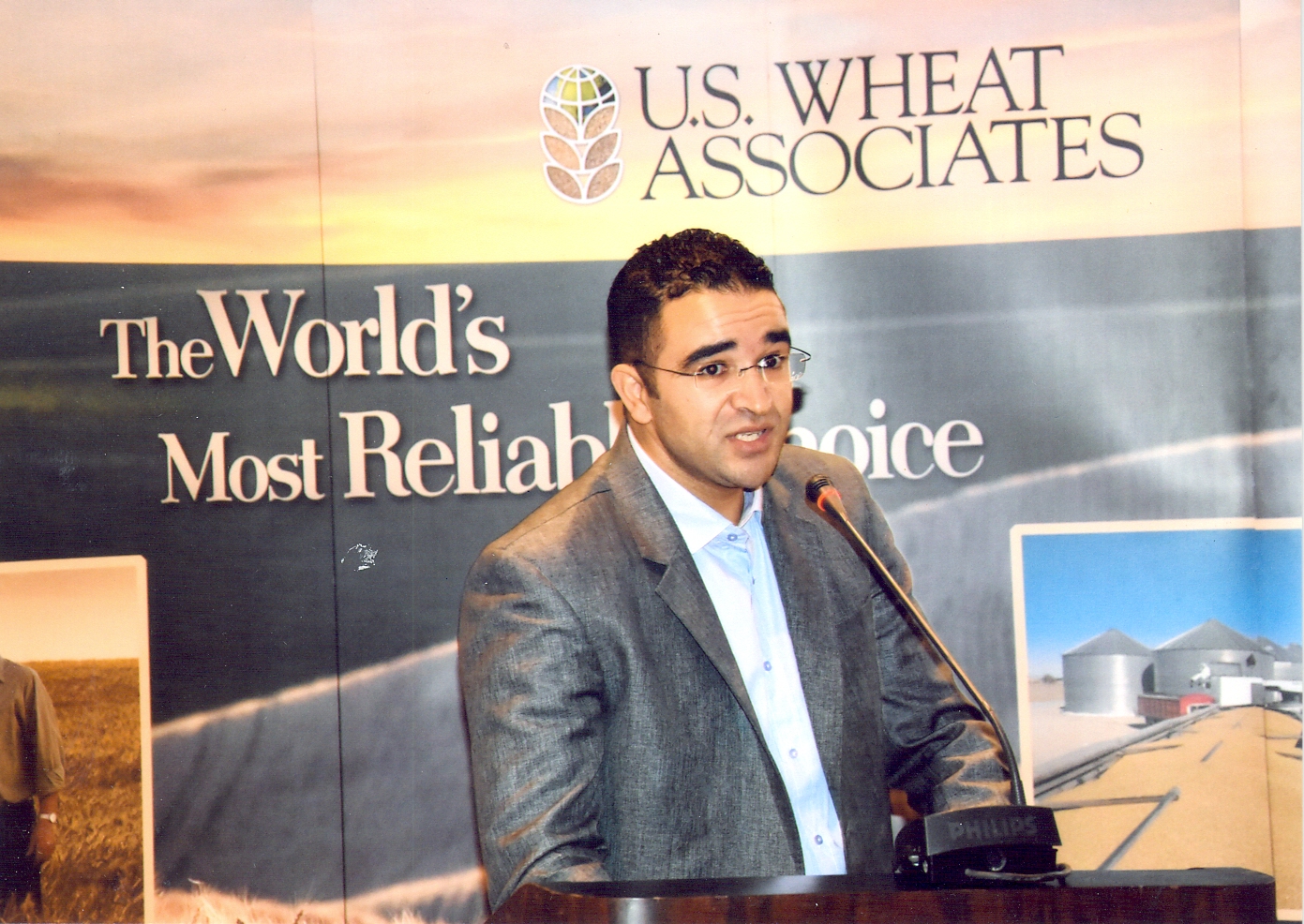U.S. Wheat Associates (USW) frequently uses the unique U.S. grain inspection system to demonstrate a competitive advantage to the world’s wheat buyers. Now, with additional funding from the Agricultural Trade Program (ATP), USW is expanding its effort to demonstrate the integrity of the U.S. wheat supply chain in cooperation with the Federal Grain Inspection Service (FGIS).
The international affairs office of FGIS provides educational training programs to overseas buyers explaining the mission of the agency to certify the physical and contractual integrity of U.S. wheat and other grains. In July 2019 in Peru, a country the imports a total of 2.0 million metric tons (MMT) of wheat each year, USW worked with FGIS agent José Robinson to conduct half-day seminars for 53 quality control managers from the country’s five largest wheat importing companies. The participants also shared their processes with Robinson, showing examples of the wheat they inspected in plant. As a result, the managers were able to test their abilities to conduct similar inspections with guidance from directly from FGIS.
Under ATP, the USW South American regional representatives based in Santiago, Chile, plan to repeat this training activity in four other South American countries over the next two years.
USW believes this service for wheat importing customers gives them a deeper understanding of and increased trust and confidence in the FGIS inspection and certification process. The changes implemented in the mills following the training sessions should result in fewer discrepancies between the FGIS grade and the results of local, in-plant inspections, leading to increased satisfaction with U.S. wheat.
In addition, USW has earmarked ATP funds to conduct a similar FGIS Grain Inspection and Certification training session at the African Milling School in Nairobi, Kenya, in 2019. This session will be in part a “train the trainer” session for faculty members from the African Milling School and from the IFIM flour milling school in Casablanca, Morocco. Technical officials from the Office of Cereals in Algeria, the agency that plans and purchases the country’s wheat imports, and other participants from selected organizations in Sub-Saharan Africa will also participate.
Working with these schools extends knowledge of U.S. wheat value to flour millers throughout North and East Africa, as well as the Middle East. That is increasingly important in these competitive markets, especially in educating millers and processors in the growing cake and confection markets that need the specific information about the differential performance of U.S. soft red winter (SRW) and soft white (SW) wheat classes.



